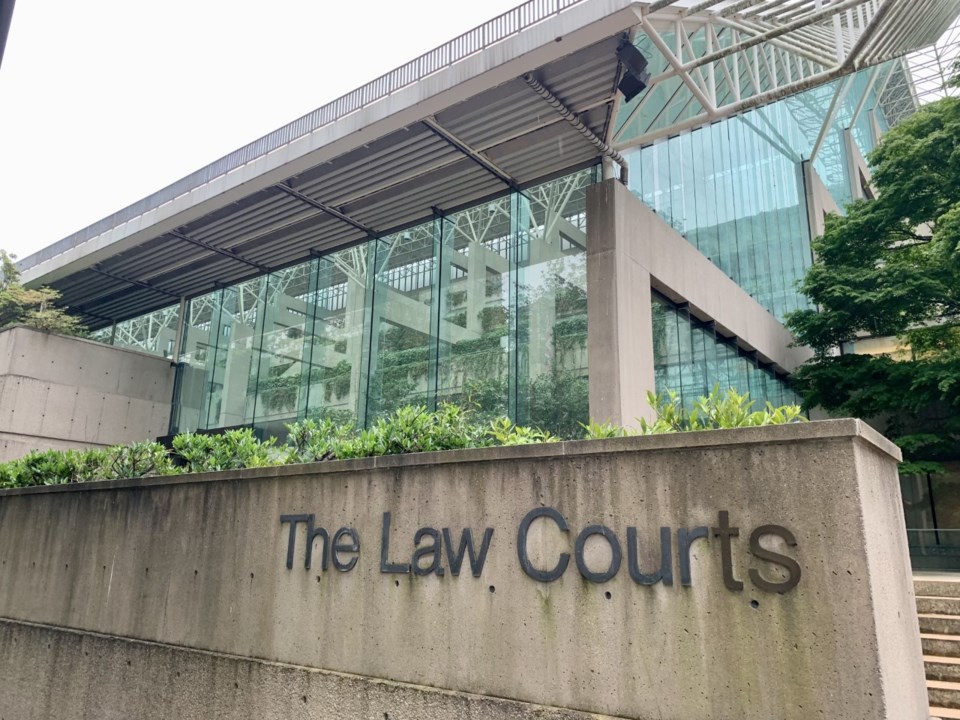B.C.’s Court of Appeal has approved a now-dead Vancouver man’s attempt to be found not criminally responsible for the 2017 murders of his building co-op council president and manager.
However, as Leonard James Landrick died in prison May 31, the outcome is now moot.
Landrick was found guilty of second-degree murder in the 2017 homicides. His arrest for the killings came the same day the bodies of Sandra McInnes and Neil Croker were found. Landrick was 76 at the time.
“The murders of Ms. McInnes and Mr. Croker were brutal and vicious,” B.C. Supreme Court Justice Ronald Skolrood said in sentencing Landrick in 2020.
“They were attacked in their beds while they were in particularly vulnerable and defenceless positions,” Skolrood said. “There was also an element of planning involved in the offences, in that Ms. McInnes and Mr. Croker were targeted by Mr. Landrick and the murders took place in two different locations.”
After the verdict was announced and before the convictions were entered, Landrick said he wanted to raise the defence of not criminally responsible on account of mental disorder (NCRMD).
The court subsequently ordered a psychiatric assessment.
“However, the report that was prepared could not support a verdict of NCRMD; the jury was not asked to make a finding on the issue and the convictions were entered,” the appeal court's Nov. 3 decision said.
Still, Landrick appealed and sought to enter two new psychiatric reports supporting an NCRMD defence.
He alleged on appeal that in light of the new evidence the verdict was a miscarriage of justice, and that the judge erred in setting a strict timeline for the completion of the assessment, which effectively prohibited Landrick from retaining his own expert.
The three-judge panel agreed and allowed the appeal.
“The judge did not err, but in light of new evidence adduced on appeal, it would be a miscarriage of justice to deny the appellant the opportunity to raise the NCRMD defence, and a new trial is necessary,” wrote Justice Lauri Ann Fenlon in the decision. “While the appellant did not meet the test for due diligence, the risk of an injustice by excluding this evidence overcomes this failure.”
Fenlon said both expert reports met the test for admissibility of new evidence on appeal, as they bear upon “the decisive issue of the appellant’s mental capacity,” are credible and constitute evidence that could affect the trial’s outcome.
The deaths
Landrick, McInnes and Croker all resided at 1835 Morton Ave. in the West End of Vancouver. Landrick and McInnes had served together on the co‑op board while Croker was the resident caretaker.
Skolrood said Landrick came to believe in May 2017 that McInnes had drugged him when he visited her suite to have a drink.
He further believed that while he was unconscious due to the drugs, Croker had sexually assaulted him.
“In the weeks that followed the alleged assault, he made his allegations known to various people in the building, to the point where Ms. McInnes was concerned about his behaviour and about her safety,” Skolrood said.
The judge said those beliefs were the product of delusions.
Late in the night of July 8, 2017, both McInnes and Croker were stabbed multiple times in their respective apartments in their beds.
Landrick denied committing the murders at trial but the jury did not believe him.
“While the evidence did not establish who was killed first, it is clear that after killing the first victim, Mr. Landrick had to travel over at least 10 flights of stairs to reach the suite of the second victim,” Skolrood said.
The appeal court said psychiatrist Dr. Andrew Kolchak opined that at time of the offences, it was “more likely than not” that Landrick was experiencing symptoms of psychosis that developed through intoxication and/or withdrawal from crack cocaine and alcohol use.
Landrick’s death
Correctional Service Canada (CSC) confirmed in a statement May 31 that Landrick had passed away from natural causes.
At the time of death, the inmate had been serving an indeterminate sentence, which commenced on Nov. 5, 2020, for second-degree murder.
“As in all cases involving the death of an inmate, the Correctional Service of Canada will review the circumstances,” CSC said at the time.
Landrick died at Abbotsford’s Pacific Institution.


